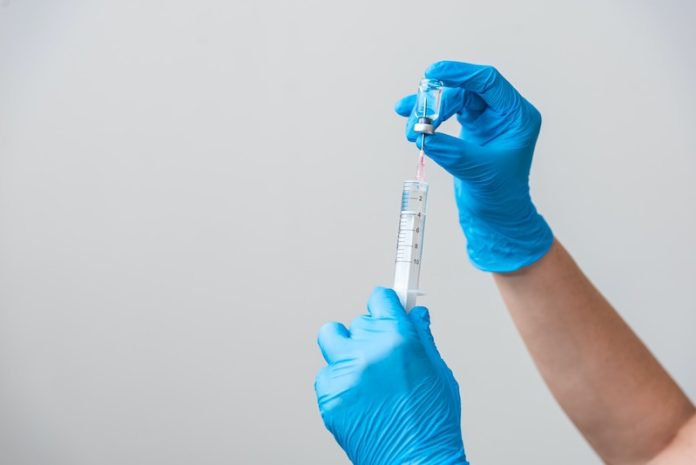
New research has focused on how our bodies produce “broadly neutralizing antibodies” (bnAbs), which can combat a variety of SARS-CoV-2 variants.
These insights may help scientists create more effective and long-lasting COVID-19 vaccines.
A Fight Against Changing Viruses
When our bodies fight off viruses, they use specific antibodies. One type, known as neutralizing antibodies, targets the receptor-binding domain (RBD)—this is essentially the virus’s method of attaching to our cells.
As SARS-CoV-2 mutates and creates new variants, it changes its appearance to evade our body’s defenses.
But a subset of neutralizing antibodies, the so-called bnAbs, can adapt to these changes. Unfortunately, our current COVID-19 vaccines struggle to produce these types of antibodies.
Investigating bnAbs
Scientists from Hiroshima University, Kyoto University, and Hiroshima Prefectural Hospital investigated these antibodies. They studied blood samples from 18 unvaccinated patients with COVID-19, collected 8-55 days after diagnosis.
They found that the level of neutralizing antibodies increased after about 17 days and were at their highest on the 55th day.
The researchers identified four promising monoclonal antibodies that neutralized the SARS-CoV-2 variant affecting the patients. However, one stood out: NCV2SG48.
This antibody showed efficacy against the original SARS-CoV-2 strain, alpha, delta, and other variants with specific mutations. Remarkably, it was also effective against omicron BA.1, BA.2, and BA.4/5 variants.
Understanding What Makes NCV2SG48 Effective
This potency appears to be due to prolonged exposure to SARS-CoV-2, which triggers a high rate of changes in the antibody known as somatic hypermutations (SHMs). These SHMs give NCV2SG48 an extensive binding interface.
NCV2SG48 targets specific areas on the virus that interact directly with our cells. These areas tend to remain the same across different variants, making them an “Achilles’ heel” for the virus.
This antibody covers almost the entire virus surface that interacts with our cells, blocking its entry.
Implications for Future Vaccines
Another promising bnAb, NCV2SG53, has been found to work well with NCV2SG48.
When combined, these two antibodies could neutralize variants at low concentrations, potentially serving as a COVID-19 treatment, especially for immunocompromised individuals.
The researchers suggest that by mimicking a two-month-long exposure to the virus, we could potentially induce the production of bnAbs through vaccination.
The proposed approach involves administering a vaccine three times to extend the duration of germinal center reaction—a critical process in the formation of antibody-producing cells—to about two months.
The team also suggests that alternating vaccines derived from different SARS-CoV-2 variants could induce an immune response akin to chronic infection, thus stimulating the production of bnAbs.
Building on these findings, the researchers are now exploring the development of an mRNA vaccine capable of inducing bnAbs, hoping that this work can contribute to the fight against future pandemics and bioterrorism.
If you care about Covid-19, please read studies about new ways to prevent the common cold (and maybe COVID-19), and common diabetes drugs linked to less severe COVID-19.
For more information about health, please see recent studies about COVID infection and vaccination linked to heart disease, and results showing extracts from two wild plants can inhibit the COVID-19 virus.
The study was published in Communications Biology.
Copyright © 2023 Knowridge Science Report. All rights reserved.



